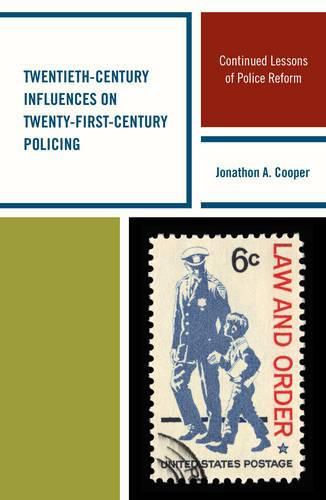Readings Newsletter
Become a Readings Member to make your shopping experience even easier.
Sign in or sign up for free!
You’re not far away from qualifying for FREE standard shipping within Australia
You’ve qualified for FREE standard shipping within Australia
The cart is loading…






Events in the United States during the 1950s, ‘60s, and '70s created tectonic shifts in how the police operated. This was especially true in terms of their relationship with society. These events included, among others: the due process revolution, which guided how police were to do their job; social science research that called into question that efficacy of the professional policing model; and race riots against police activity, which were the result of poor police-minority community relations. This book outlines these (and other) changes, explores their implications for the relationship between society and the police, and suggests that a knowledge of these changes is imperative to understanding trends in contemporary policing as well as the direction policing needs to take. As policing becomes more technologically savvy and scientific in its approach to fighting crime (for example, the SMART Policing Initiative, COMPSTAT, and problem oriented approaches such as Project Safe Neighborhoods) in a time when governments are faced with austerity, it is important to reconsider how policing got to the point it is so that, as police and governments move forward, constitutional guarantees are protected, communication with citizens remains viable and salient, and crime prevention becomes an empirical reality rather than a pipe-dream.
$9.00 standard shipping within Australia
FREE standard shipping within Australia for orders over $100.00
Express & International shipping calculated at checkout
Events in the United States during the 1950s, ‘60s, and '70s created tectonic shifts in how the police operated. This was especially true in terms of their relationship with society. These events included, among others: the due process revolution, which guided how police were to do their job; social science research that called into question that efficacy of the professional policing model; and race riots against police activity, which were the result of poor police-minority community relations. This book outlines these (and other) changes, explores their implications for the relationship between society and the police, and suggests that a knowledge of these changes is imperative to understanding trends in contemporary policing as well as the direction policing needs to take. As policing becomes more technologically savvy and scientific in its approach to fighting crime (for example, the SMART Policing Initiative, COMPSTAT, and problem oriented approaches such as Project Safe Neighborhoods) in a time when governments are faced with austerity, it is important to reconsider how policing got to the point it is so that, as police and governments move forward, constitutional guarantees are protected, communication with citizens remains viable and salient, and crime prevention becomes an empirical reality rather than a pipe-dream.